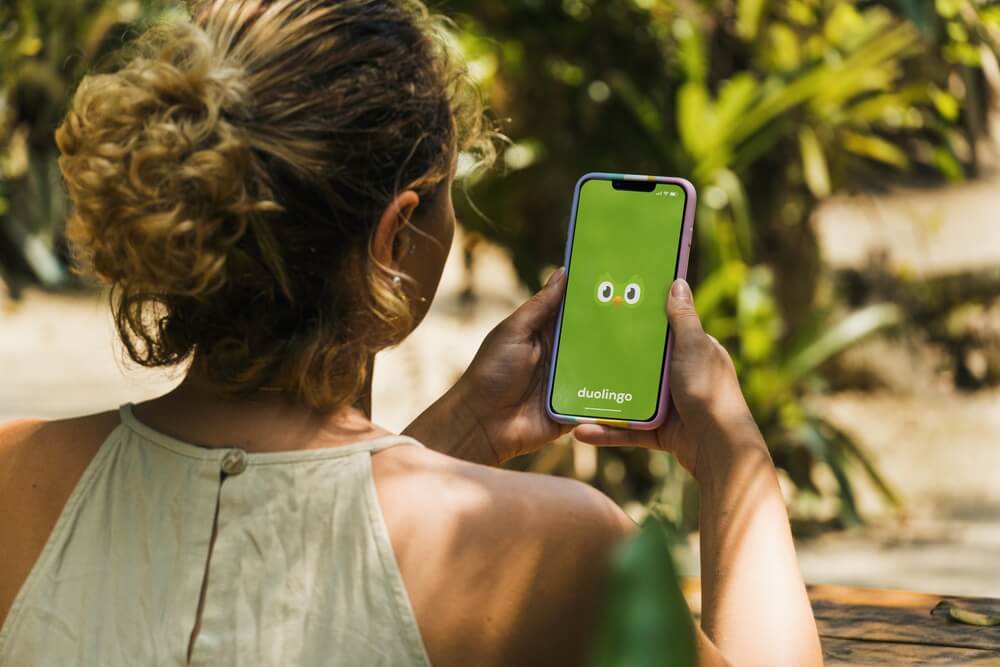For many international students who move to the UK to study and don’t speak the language fluently, overcoming the language barrier is one of the main sources of anxiety. Daunting as it may be to make yourself at home in a new country where you haven’t perfected the national language, there are many proven ways to help you overcome the language barriers.
In 2022, the total number of international students in the UK reached 605,130, and many of those students did not use English as their first language. As alienating as it feels, you are not alone in your mission to learn English in addition to taking on the other stressors of academic life. And always remember that UK universities actively welcome international students, who are vital to the economy’s prosperity!
Whether you are worried about not being able to understand the local slang and lingo or your fears mostly revolve around academic underperformance due to language barriers, know that those fears are completely valid and normal. Once you immerse yourself in the culture, you will be surprised how easily you will pick up the language.
8 Proven Ways of How to Overcome Language Barriers for International Students
Practice Makes Perfect

While studying as an international student in London or any other UK university, there will undoubtedly be times when you feel frustrated as you are not able to express yourself as well as you can in your native language. The trick is not to allow these frustrations or feelings of shame to get in the way of expressing yourself.
As second and third languages don’t always come as easy as first languages, using them to communicate can often feel exhausting. Taking a break by speaking to someone in your native language is a great way to stay connected while not running the risk of second-language burnout. You can call someone from home or take advantage of the culturally-diverse nature of the UK by finding someone else who speaks your native language.
If you aren’t 100% sure how to phrase something, take a shot at saying it anyway. Even if your phrasing isn’t perfect, you will likely be understood anyway! The key is to take the pressure off yourself to be perfect every time you speak English! Remember, no one will be as hard on you about not being fluent in English as you are on yourself! If you make a mistake, go easy on yourself and laugh it off – a sense of humour is vital!
Studying abroad is a fantastic, culturally enriching, and often life-changing experience for many students who gain professional and personal opportunities. Even learning a second language can do wonders for your professional career – without considering how far a UK degree can take you. With a positive mindset, overcoming language barriers and other challenges can all be part of the fun.
Join Societies

A great way to remove the anxiety around speaking during lectures and seminars is by joining university societies, which will provide relaxed environments for you to practice conversations.
The UWS Student Union has a range of societies and volunteering to get involved with, including ones founded based on shared interests, university courses, faiths, cultures, and representation groups. For international students, some popular societies include the Black & Minority Ethnic Society, the Indian Students Society, the International Students Society, and the UWS Muslim Students’ Association. If a society doesn’t exist, you are free to create your own – you only need three students to get started!
Studies have proven that talking with people you like hanging around with and feel comfortable with is one of the best ways to improve your conversational skills, which will prove invaluable when developing relationships as an international student.
Watch English TV Shows

Language experts highly recommend watching films and TV in different languages to develop new language skills via active and passive learning. There is no reason why you can’t have fun during the process of learning a new language! In Japanese universities, lecture halls are filled with American and Chinese students who never formally studied Japanese in a traditional format; they picked up all their Japanese language skills by watching Anime films with subtitles!
- When learning a new language by watching English films and TV, choose something you will be engaged by. Opting to view cult-hit titles and series that align with your current interests will help you pay attention.
- To turn passive learning into active learning, always opt for a show or film with English subtitles; this will help you to research the meaning of the word before you add it to your expanding English vocabulary. It will also be helpful for you to keep a notepad and pen on hand to jot down any words you don’t understand.
- Choose shows with repetitive storylines, where there is always an element of predictability. There is a reason why so many people have used the American TV show Friends to pick up the English language. Each episode focuses on the daily lives and the mishaps of a group of six friends in New York City. Rather than focusing on the plot, you can direct your awareness to the phrases used in the dialogue.
Seek Positive Experiences

For International students learning to overcome language barriers, there will be experiences along the way which could be perceived as negative. Such as feeling embarrassed when misunderstanding someone, a miscommunication leading to a mishap, or needing multiple attempts to rephrase what you want to convey. To balance these perceived negative experiences, which can chip away at self-confidence, seek as many positive experiences that align with your interests as possible.
If you love good food, head to restaurants. If you are a music lover, check out local gig listings and look up the lyrics to the band’s popular songs beforehand. Don’t shy away from social events where you can make new friends who will be happy to help you improve your English skills. Never presume your language barrier makes you a burden to be around.
Language exchanges and meet-ups have also become popular in London and other cities across the UK in recent years. The mutually-beneficial culture exchanges are a great opportunity to learn in a low-pressure environment where fluency isn’t expected!
Attend Writing Workshops

One of the most difficult language barriers for international students studying overseas is writing essays in a foreign language. Thankfully, there are plenty of workshops and writing classes for students to attend. These classes will help you to master your grammar, reduce the chance of making spelling mistakes and improve your word choice.
Once you feel confident and comfortable writing essays, which are a fundamental part of student life, it will be easier for you to take everything else in your stride. Every UK university has a department that assists international students, which can help point you towards workshops and writing classes.
Online writing tools such as Grammarly will also improve your English writing skills. When you submit an essay in Grammarly, it will check for spelling mistakes, grammar mistakes, confusing sentences or words used inappropriately within the context of the sentence. Instead of just highlighting errors in your essays, Grammarly will suggest alternative and more suitable words.
Language Dictionary

While you are out and about on campus or exploring the city outside of it, always keep a language dictionary with you so you can prepare for situations as they arise. A Multilingual dictionary will help you with everyday phrases which might come in handy while speaking in a foreign language when ordering a drink in a coffee shop, going for a haircut, visiting a doctor, or asking for directions.
You can also use plenty of online translation platforms instead of a bilingual dictionary. However, these platforms are less useful with longer or complete sentences. Examples of online translation platforms include Word Reference, bab. la, and Wiktionary. For help with more technical words and phrases that you may not encounter in a standard bilingual dictionary, ProZ is a popular option with many international students.
Start with the Basics

It is easy to get overwhelmed with the prospect of learning an entire language; knowing where to start and making small steps towards fluency is one of the best ways to overcome language barriers. Learning the basics should ideally involve perfecting the basic phrases such as hello, goodbye, yes, no, sorry, okay, and thank you.
Furthermore, splitting your language learning time between writing, reading, speaking and listening to the English language is vital. It also helps to be prepared in advance for the strong regional accents that you may encounter while studying. The UK may be small compared to other countries and continents, but if you drive or travel anywhere in the UK for an hour, don’t be surprised if the local accent changes more than once!
Language learning apps, including Duolingo, are a good way to learn the basics at your own pace. However, you will need to remember that your grasp of the English language will never solely come from apps. Learning curves will always be waiting for you once you arrive in a new country. Rather than worrying about these learning curves cropping up, use them as an essential part of your language learning journey. Once you have overcome these hurdles, the road will get smoother for you in time.
Open Mind

Anxiety is a fundamental part of the human experience. It is natural to fear language barriers, how you will adjust to the local customs away from everything you know and love at home, and the culture of the region. However, if you have travelled before, you will already know that preconceived ideas of countries and cultures couldn’t be more inaccurate. A county and city are far more than the stereotypes that are known across the world.
Undoubtedly you will spend ample time researching a culture before you live in it full-time as a student, but not allowing preconceived ideas of cultures to inform your judgment is necessary for minimalising anxiety and arriving with an open mind. Once you arrive, don’t be afraid of being inclusive, taking an interest and adopting the vibrant multicultural nature of the UK.
Additional Advice and Support for International Students
In 2022, UCAS surveyed international students studying in the UK, highlighting that almost nine out of ten international students perceived their study life as positive. Amongst the main reasons international students applied for UK universities included the strong academic reputation of UK universities, the multicultural diversity in the UK and the support and welcome they would receive when they arrive. All change is daunting at first before the adjustments are made to adapt to it. Trust that you have what it takes to follow in the footsteps of the millions of international students that have enjoyed their experiences in the UK – despite language barriers.
While it can take up to a year to become fluent in a language away from the culture, with complete immersion within that culture, the learning time is halved! Even if you don’t have that much time to prepare for your undergraduate or postgraduate study, know that as you adjust to student life in the UK, it will get easier day by day if you are willing to make the most out of your experience.
If you do experience mental distress, anxiety, depression, or chronic stress while you are coming to terms with the language barriers and the other waves of culture shock, know that all international student departments in universities are equipped, capable and willing to provide support.


